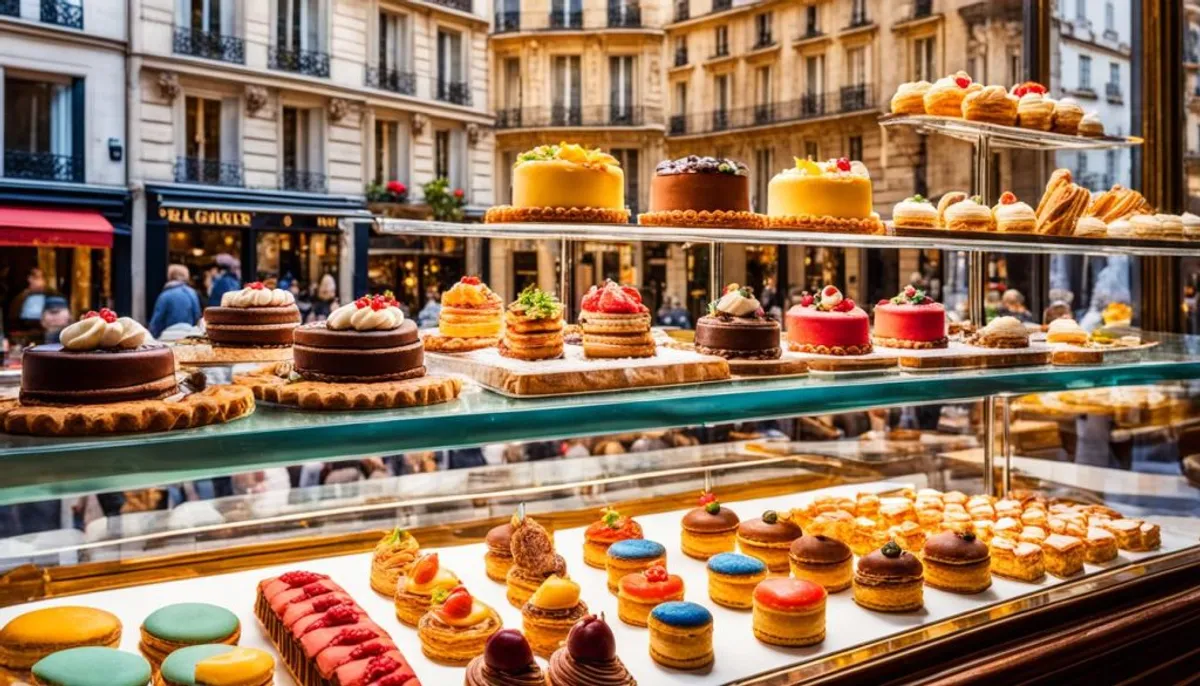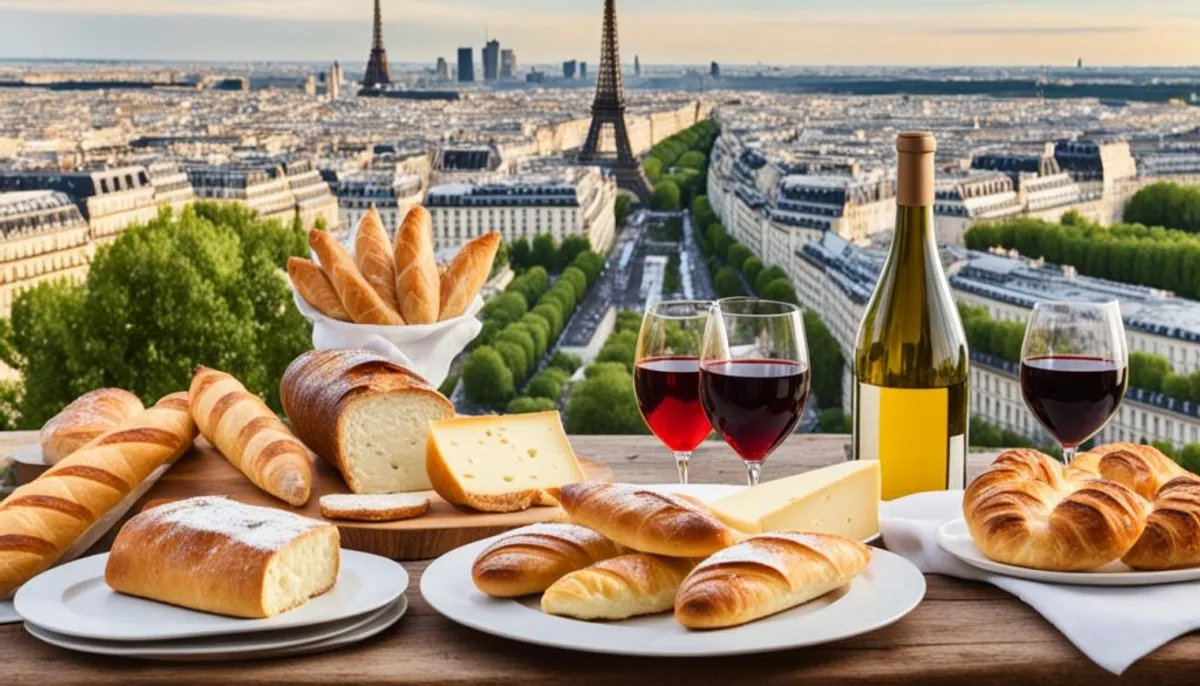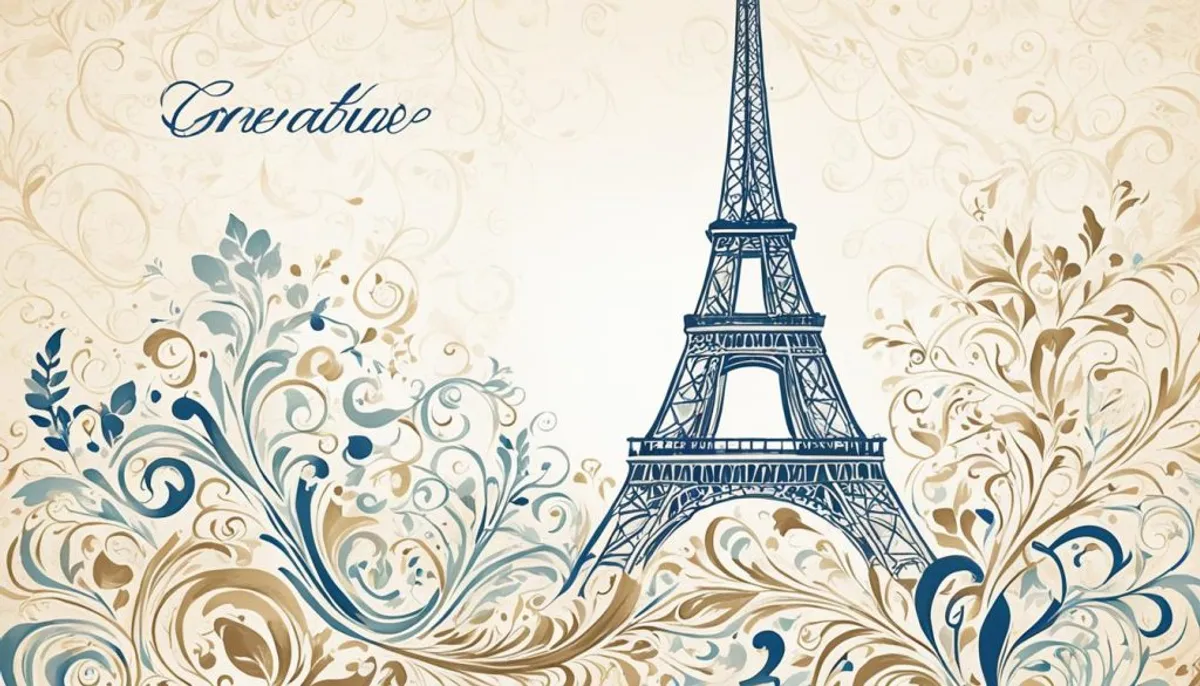The French culture is known for its lightness, romanticism, and joie de vivre. It is closely tied to French gastronomy, with its cheeses and wines. The French culture is both uniform and diverse. This shows its ability to adapt while maintaining its ancestral traditions.
France has always been open to racial and cultural diversity. It has welcomed many minorities. This openness has enriched the French culture, which includes French art, French literature, French architecture, French cinema, and French music.

The French language has evolved and adapted over the centuries. It remains a language of prestige and influence on a global scale.
Introduction to French Culture
The French culture is rich and varied. It showcases the diversity and richness of France. It is more than just a simple set of practices and traditions. It is a true national identity, forged by centuries of history and international influence.
Definition of French Culture
The definition of French culture includes artistic, intellectual, and social expressions. It encompasses its gastronomy, literature, and philosophies. The French culture stands out for its uniqueness and global influence.
Importance and Influence of French Culture
The importance and influence of French culture are clear. France has influenced many schools of thought for centuries. Its philosophers, writers, and literature have marked intellectual history. Today, French culture is valued by the media, forming part of the French identity.

| Indicator | Value |
|---|---|
| Number of foreign visitors to France | 89.4 million (2018) |
| Global ranking of French universities | 10 institutions in the top 200 |
| Nobel Prizes in French literature | 15 laureates |
French Cultural Traditions and Heritage
French culture is known for its art of living and its ancient traditions. It shines through its French gastronomy and local products. France also excels in haute couture, jewelry, and luxury, showcasing its craftsmanship and elegance.
French Gastronomy and Local Products
French gastronomy is an art that celebrates local products and cuisine. It is recognized worldwide. Local products, such as foie gras and ratatouille, showcase the richness of French terroirs.
French Arts and Literature
France has been a major cultural hub since the 12th century. Its literature and philosophy have influenced many countries. “Liberty Leading the People” by Eugène Delacroix symbolizes French culture, linking art, history, and republican values. The French literature, rich and creative, reflects the nation's intellectual finesse.
The French Language
The French language is at the heart of France's cultural identity. Since 1539, French has been the official language, making France prestigious in Europe. This occurred in the 17th and 18th centuries.
Despite competition from English, French remains an international language. It is official in organizations such as the United Nations and the European Union. France also protects and values regional languages, considered a national heritage.
The French language originated from Latin, Greek, and vernacular languages. It occupies a unique place in the world. Its richness and diversity highlight the importance of French language policy.

The French language is crucial for the global French culture. It allows for the sharing of traditions, arts, and gastronomy of France. This reinforces France's international influence.
French Culture
French culture is rich and varied, thanks to its complex history and the influences it has received. Despite strong centralization, French culture showcases the diversity of French cultural identity through regional contributions.
Characteristics and Diversity of French Culture
French culture is unique in its diversity. It is evident in gastronomy, arts, literature, and architecture. France celebrates its cultural richness, which comes from its regional heritages.
Role of French Cultural Institutions
France has a strong cultural policy, with a dedicated ministry and numerous institutions. This policy began during the French Revolution and has strengthened under the Fifth Republic. Institutions like academies and national museums help protect and promote French culture.
| French Cultural Institutions | Role |
|---|---|
| Ministry of Culture | Development and implementation of national cultural policy |
| Academies (French Academy, Academy of Fine Arts, etc.) | Preservation and promotion of French cultural heritage |
| National Museums (Louvre, Orsay, Pompidou, etc.) | Conservation, exhibition, and promotion of French artworks |
| Ministerial Departments (Books and Reading, Live Performance, etc.) | Support and development of various cultural fields |
Conclusion
French culture is rich and unique. It ranges from gastronomy to arts and literature. France has preserved its heritage while welcoming new influences.
This balance between national unity and regional diversity has made French culture an international phenomenon. It has become a key element of French identity.
The French cultural identity is increasingly important. It showcases the richness and vitality of the country. France celebrates its heritage through its institutions and local products.
This offers visitors a unique and authentic cultural experience.
French culture, with its diversity and uniqueness, is essential to the nation. It creates the image and influence of France internationally. This blend of tradition and modernity makes French culture unique and inspiring.
RelatedRelated articles


